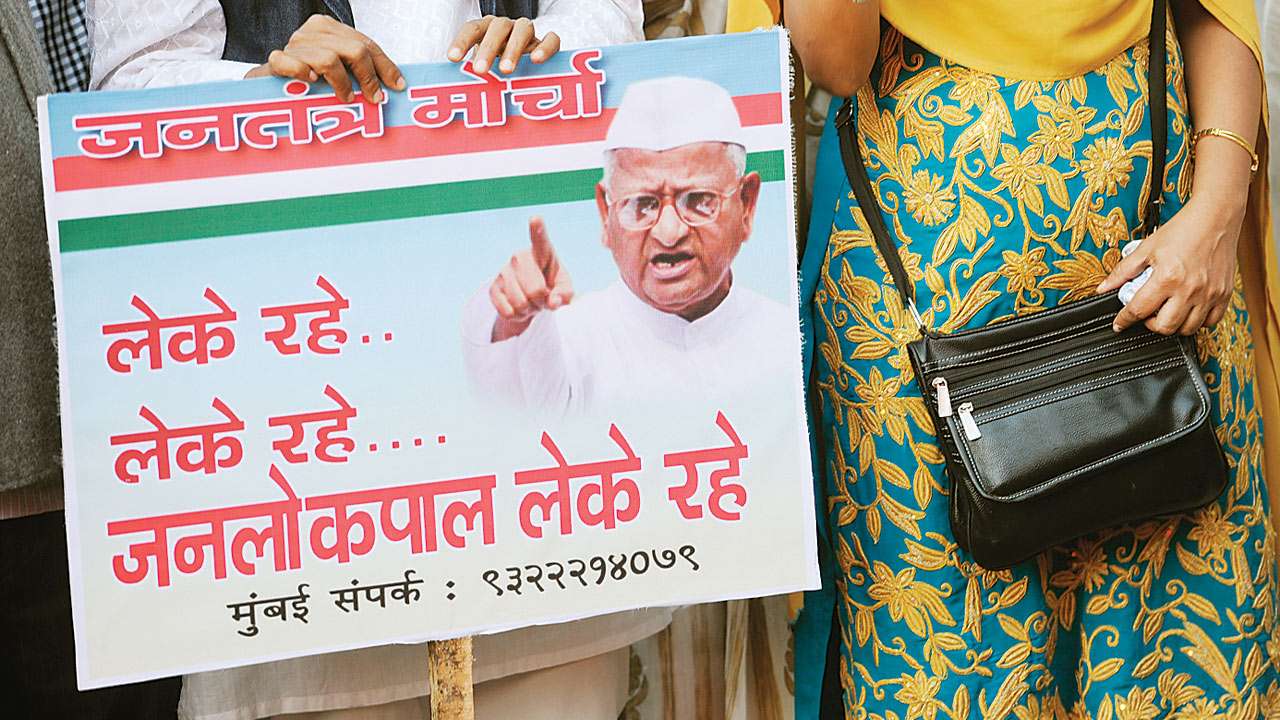
The question, perhaps uppermost, in the mind of Indians is will the Lokpal finally see the light of the day?
A tortuous journey that began 56 years ago when the concept of an ombudsman was first discussed in Parliament, the Lokpal bill was introduced in the legislature nine times since 1968. Finally, the Lokpal and Lokayuktas Act of 2013 came into effect on January 16, 2014.
The delays in setting up the Lokpal cannot be attributed to the government alone. First, the government introduced an amendment bill since it introduced changes to the original legislation. The amendment Bill was referred to a Parliamentary Standing Committee, which submitted its report in December 2015. Moreover, because of its depleted numbers, only 44 seats in 2014 Lok Sabha elections, the Congress candidate’s inclusion as a leader of the Opposition in the special committee headed by the Prime Minister was untenable.
Meanwhile, an eminent jurist on the panel, senior advocate PP Rao, passed away in 2017, and finding his replacement took time. Other wrinkles that hobbled the process pertained to lack of infrastructural support, such as lack of office space, manpower, secretariat, etc. for which “the search committee has felt handicapped in convening its meeting”.
If the search committee does indeed come up with a panel of names for the appointment of the first Lokpal and its members, it will be just before the elections. That could be considered a feather in the cap for the government, which rode to power on the anti-corruption plank. And, why blame the Centre when the states didn’t do their bit in the first place?
The 2014 act has also asked states to appoint a Lokayukta within a year of its coming to force. But now 13 states do not have a Lokayukta — while some have temporary vacancies, seven states haven’t ever had a Lokayukta.
Many of them such as West Bengal, Odisha, Telangana, Andhra Pradesh, Tamil Nadu and Punjab, are ruled by regional parties opposed to the BJP. The fact of the matter is no political party wants an independent anti-corruption watchdog because it is detrimental to their idea of self-preservation.
State governments, such as the TMC in Bengal, passed the West Bengal Lokayukta (Amendment) Bill, 2018, following amendments that diluted the powers of the Lokayukta. The idea of a Lokayukta gained currency because of the historic abuse of agencies like the CBI and CVC, which were supposed to be fearless and impartial but ended up being the lapdog of ruling parties.
At the helm of power for the longest time, the Congress had been particularly adept at stripping these agencies of power. Recall that the The Whistle Blowers Protection (Amendment) Bill, 2015, has been stuck because of lack of bipartisan support.
India ranks high on the corruption index, and those people such as journalists who have revealed corrupt practices are particularly vulnerable. Political parties in India are duty-bound to the people to give them clean governance. In reality, they will do everything in their power to thwart transparency.